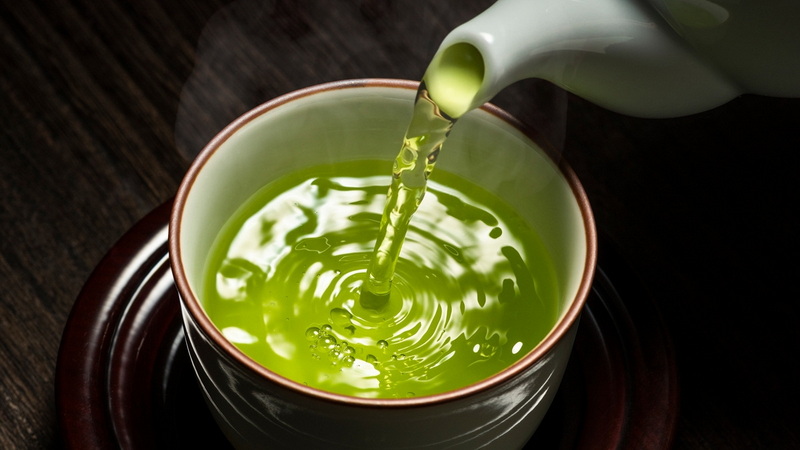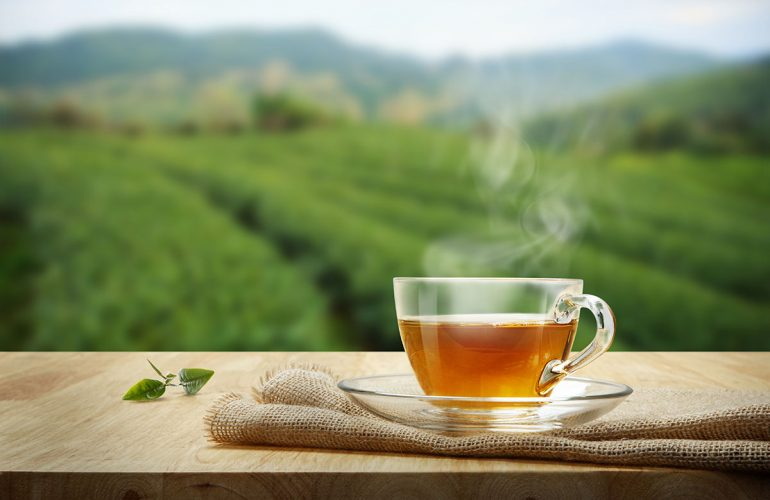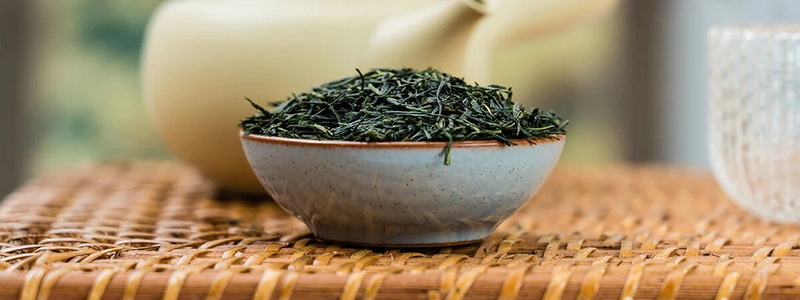Content Menu
● Botanical Origins of Green Tea Extract
● Extraction Process
● Chemical Composition
● Herbal Classification
● Health Benefits of Green Tea Extract
● Forms and Dosage
● Safety and Quality
● Potential Side Effects
● Conclusion
● Frequently Asked Questions (FAQ)
>> 1. What is green tea extract?
>> 2. How is green tea extract made?
>> 3. What are the benefits of taking green tea extract?
>> 4. Is green tea extract safe?
>> 5. Can I take green tea extract with caffeine?
● Citations:
Green tea extract is a popular supplement known for its potential health benefits. Derived from the Camellia sinensis-plant, it is often marketed as a natural way to boost antioxidant intake, support weight loss, and improve overall well-being[1][4][5]. However, the question of whether green tea extract is truly herbal warrants a closer examination. This article aims to explore the botanical origins, extraction processes, chemical composition, and uses of green tea extract to determine its classification as an herbal product.

Botanical Origins of Green Tea Extract
Green tea extract originates from the leaves of the Camellia sinensisplant[1][4][7]. This plant is the source of various types of tea, including green tea, black tea, and oolong tea[1][4]. The differentiation between these teas lies in their processing methods. Green tea is produced by steaming, pan-frying, and drying the leaves, which prevents oxidation and preserves the natural compounds[4].
Camellia sinensis Plant:
-Family: Theaceae[1]
-Common Names: Green tea, Chinese tea, green sencha tea, Japanese tea, Yame tea[1]
-Description: A shrub or tree native to East Asia, now grown in Asia, the Middle East, and Africa[7]
Extraction Process
The process of extracting green tea involves several steps to concentrate its beneficial compounds. Typically, the leaves are steeped in mineral water for an extended period, and then strained[2]. This method ensures that the active ingredients, such as polyphenols and EGCG, are captured[2].
Steps in Green Tea Extraction:
1. Steeping green tea leaves in mineral water[2]
2. Straining the liquid to remove solids[2]
3. Further processing to concentrate the extract[10]
4. Drying the extract to form a powder or encapsulating it in liquid form[5]
Chemical Composition
Green tea extract is rich in various chemical compounds, primarily polyphenols, catechins, and other antioxidants[1][7]. The most notable of these is epigallocatechin gallate (EGCG), which is known for its potent antioxidant and anti-inflammatory properties[1][5].
Key Chemical Components:
-Polyphenols: Powerful antioxidants that contribute to the health benefits of green tea[1][7]
-Catechins: A type of polyphenol, with EGCG being the most active and studied[1][7]
-Caffeine: A mild stimulant present in small amounts[1][2]
-L-Theanine: An amino acid that promotes relaxation[2]
Herbal Classification
To determine if green tea extract can be classified as herbal, it is essential to understand the definition of "herbal." Herbal products are generally defined as those derived from plants and used for medicinal or therapeutic purposes. Given that green tea extract is derived directly from the Camellia sinensis-plant and is used to promote health, it can be considered an herbal product[1][4].

Health Benefits of Green Tea Extract
Numerous studies have explored the potential health benefits of green tea extract. These include antioxidant effects, weight management, cardiovascular support, and neuroprotective properties[5][8].
Antioxidant Effects:
-Green tea extract is rich in antioxidants, which help protect the body against oxidative stress and damage from free radicals[1][7].
Weight Management:
-Some studies suggest that green tea extract may aid in weight loss by inhibiting fat absorption and increasing metabolism[5][8].
Cardiovascular Support:
-Green tea extract may help reduce blood pressure and improve overall cardiovascular health[5][8].
Neuroprotective Properties:
-The compounds in green tea extract may support brain health and protect against neurodegenerative diseases[5].
Forms and Dosage
Green tea extract is available in various forms, including capsules, liquids, and powders[5]. The recommended dosage typically ranges from 250 to 500 mg per day, taken with food to enhance absorption and prevent potential liver damage[5].
Available Forms:
-Capsules[2]
-Liquids[5]
-Powders[5]
Recommended Dosage:
-250-500 mg per day[5]
-Taken with food[5]
Safety and Quality
While green tea extract is generally considered safe, it is essential to purchase supplements that have been analyzed by an independent lab to verify purity and content[5]. This ensures that the product is free from contaminants and contains the stated amount of active ingredients.
Safety Considerations:
-Purchase supplements from reputable brands[5]
-Check for independent lab analysis[5]
-Start with a low dose to assess tolerance[5]
-Consult with a healthcare provider before use[5]
Potential Side Effects
Although green tea extract is generally well-tolerated, some individuals may experience side effects such as jitteriness, digestive upset, or liver distress[2][8]. These side effects are rare but should be monitored.
Common Side Effects:
-Jitteriness[2]
-Digestive upset[8]
-Liver distress[8]
Conclusion
In conclusion, green tea extract can be considered an herbal product due to its derivation from the Camellia sinensis-plant and its use for health-promoting purposes[1][4][7]. It offers numerous potential health benefits, primarily due to its high antioxidant content[5][7]. However, it is essential to source high-quality supplements and use them safely to maximize benefits and minimize potential side effects[5][8].

Frequently Asked Questions (FAQ)
1. What is green tea extract?
Green tea extract is a concentrated form of green tea, derived from the leaves of the Camellia sinensis-plant. It is rich in polyphenols and antioxidants, particularly EGCG, and is used to promote various health benefits[1][7].
2. How is green tea extract made?
Green tea extract is made by steeping green tea leaves in mineral water, straining the liquid, and then concentrating the extract to isolate the active ingredients[2]. This process ensures a high concentration of beneficial compounds like polyphenols and EGCG[2].
3. What are the benefits of taking green tea extract?
The benefits of green tea extract include antioxidant protection, support for weight management, cardiovascular health, and brain function[5][8]. It helps protect against oxidative stress, may aid in weight loss, reduces blood pressure, and supports cognitive function[5].
4. Is green tea extract safe?
Green tea extract is generally safe when taken in recommended doses. However, it is important to purchase supplements from reputable brands and consult with a healthcare provider before use. Some individuals may experience side effects such as jitteriness or digestive upset[2][8].
5. Can I take green tea extract with caffeine?
Yes, caffeine may enhance the effects of green tea extract[2]. However, it is important to monitor your caffeine intake to avoid excessive stimulation or other adverse effects[2].
Citations:
[1] https://www.urmc.rochester.edu/encyclopedia/content?contenttypeid=19&contentid=greenteaextract
[2] https://www.zhounutrition.com/blogs/the-greatness-files/green-tea-extract-q-a
[3] https://www.sohu.com/a/846632226_121124322
[4] https://www.nccih.nih.gov/health/green-tea
[5] https://www.healthline.com/nutrition/10-benefits-of-green-tea-extract
[6] https://patents.google.com/patent/TWI607708B/zh
[7] https://www.mountsinai.org/health-library/herb/green-tea
[8] https://examine.com/supplements/green-tea-extract/
[9] https://www.tiprpress.com/ywpjyj/article/pdf/20211226?file_name=B3147901C258E4906B492BA210E8E029D066D7E3AD76D56B0BFA74F1B4E7AC3BE05483707C8968B3D90F3BF39AA09C180EBB849988D3D50E2F7373E32FD3F2CB&open_type=self
[10] https://en.wikipedia.org/wiki/Green_tea






























